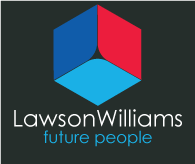What’s your story?

If you have been active in the job market recently you will have heard about Behavioural interview questions or experienced them in a job interview. They usually start with “Tell me about a time when you…” or “Give me an example of when you…”.
Their purpose is to listen to an actual past experience and from this understand the competencies that you displayed and the actions that you took to deliver an outcome. From this we assume that past performance is a strong predictor of future performance.
In reality they require you to tell a story, but not just any story, it must be good.
Good stories are the key to success in job interviews.
From my years of experience in recruitment I believe that people who have thought about and prepared their job stories will more often get the job.
This article is aimed at encouraging you to think now about the stories you will need to tell at your next interview and to work on them before you start a job search process.
Actually, today at work you are creating stories that will be relevant to your next job interview. How have you behaved today, how have you led people, how have you dealt with conflict, how have you demonstrated innovation, how have you influenced stakeholders, how have you functioned as a team member?
Are you creating good stories that demonstrate the competencies required to progress in your career?
What stories will I need?
Obviously, every job has its unique competencies however there are common competencies that most employers are looking for, so why not start here.
1.Tell me about how you worked effectively under pressure?
What They Want to Know: If you’re being considered for a high-stress job, the interviewer will want to know how well you can work under pressure. Your story should be a real example of how you’ve dealt with pressure when you respond.
2. How do you handle a challenge? Give an example.
What They Want to Know: Regardless of your job, things may go wrong and it won’t always be business as usual. With this type of question, the hiring manager wants to know how you will react in a difficult situation. Your story should focus on how you resolved a challenging situation when you respond. Consider sharing a step-by-step outline of what you did and why it worked.
3. Give an example of how you set goals.
What They Want to Know: With this question, the interviewer wants to know how well you plan and set goals for what you want to accomplish. The easiest way to respond is to share a story of successful goal setting.
4. Describe a decision you made that wasn’t popular, and explain how you handled implementing it.
What They Want to Know: Sometimes, management has to make difficult decisions, and not all employees are happy when a new policy is put in place. If you’re interviewing for a decision-making role, the interviewer will want to hear a story showing your process for implementing change.
5. Give an example of how you worked on a team.
What They Want to Know: Many jobs require working as part of a team. In interviews for those roles, the hiring manager will want to hear a story that demonstrates how well you work with others and cooperate with other team members.
Practice makes perfect.
Practicing your stories is essential. Letting other people hear them before an interview is the best preparation. If you can’t convince your friends to listen there are businesses who can help you craft and prepare for your next interview. You can try www.interview.co.nz.
